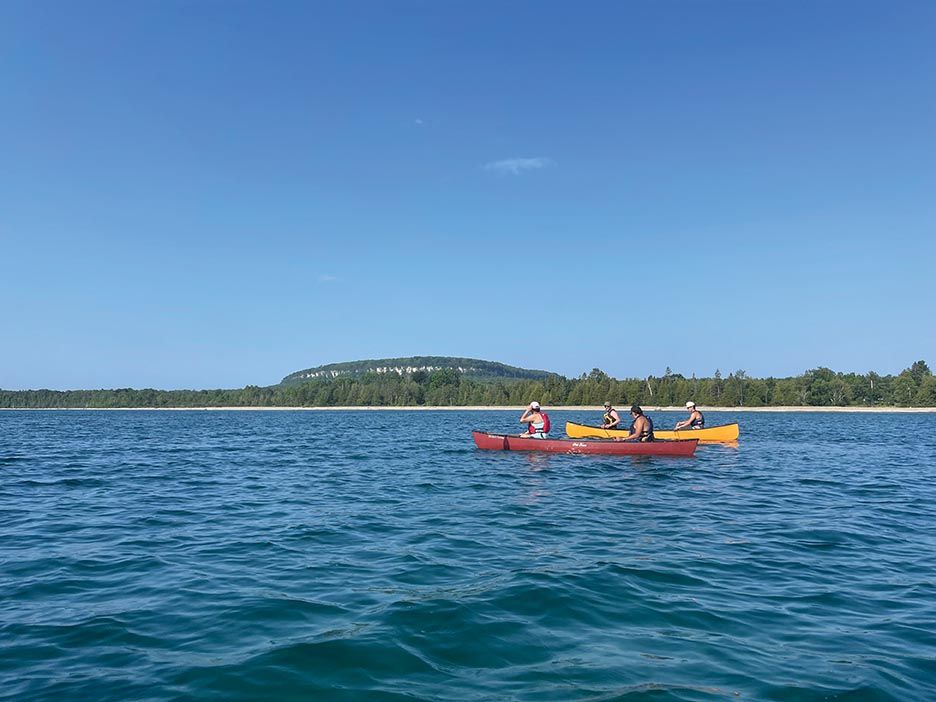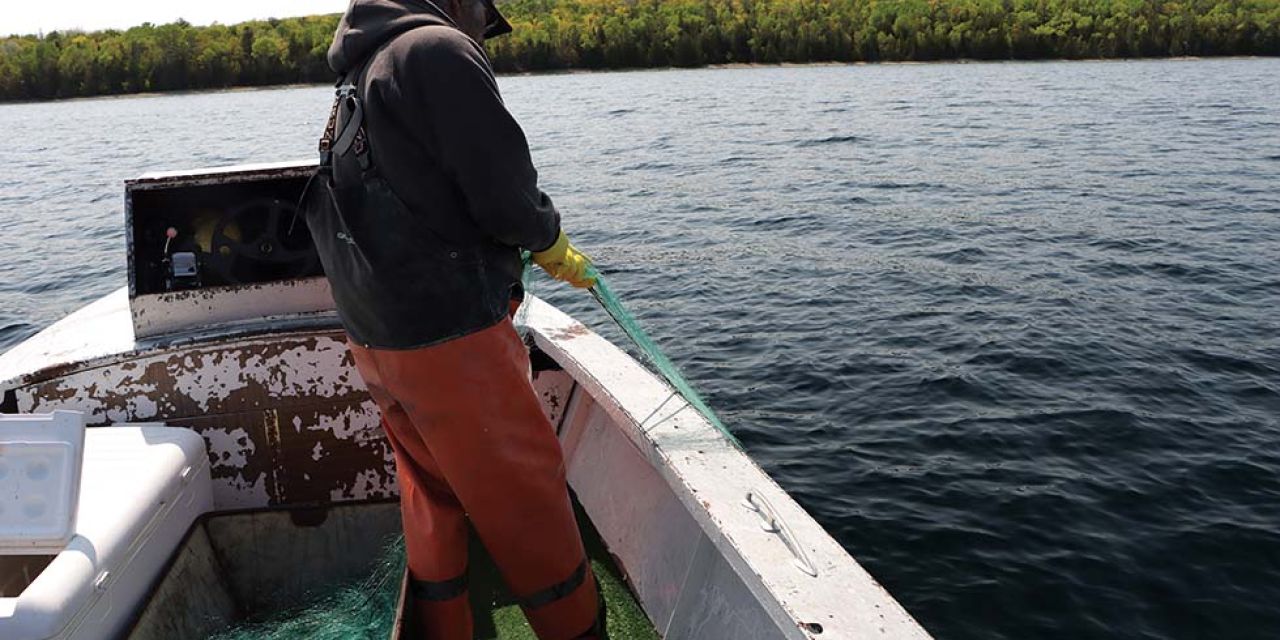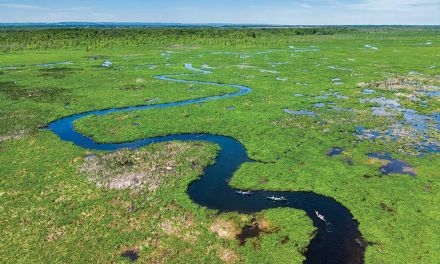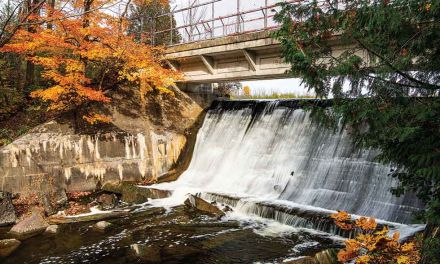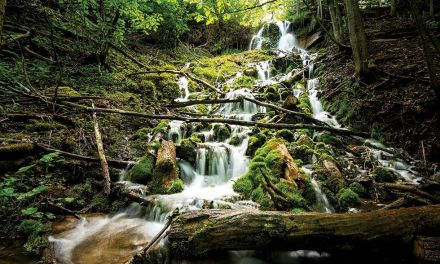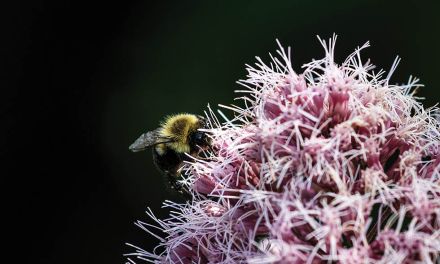A Fine Kettle of Fish
by Kate MacLennan, photography by Natasha Akiwenzie
Once abundant, Georgian Bay whitefish numbers have declined rapidly and substantially. To protect them, the Bagida’waad Alliance has cast a wide net.
The story of the Georgian Bay Whitefish starts, for many Indigenous cultures, at the absolute beginning. The adikmeg or tiq a mek (whitefish) factors into the creation stories of Anishinaabe, Odawa and Ojibwe people. It has appeared over thousands of years in their artwork and storytelling and has fed countless generations of families. For members of the Saugeen Ojibway Nation, its place of importance in the past is undeniable and permanent. Its future, however, is frighteningly uncertain.
Natasha Akiwenzie is from the Lac Seul First Nation. She grew up in Penetanguishene and is a vegetarian. She knew little about any kind of fish, she says, until she met her husband Andrew 30 years ago. “He had just come back from fishing and had fish scales all over him. I asked what kind of fish it was, and he said, ‘This is whitefish.’ And that was my introduction to it,” she recalls.
Andrew is from the Chippewas of Nawash Unceded First Nation, and has been fishing for much of his life. In his punt, he can navigate the coastlines of Griffith, Whitecloud and Hay Islands and the shoreline of Neyaashiinigmiing with familiarity and ease. Usually he fishes alone, lifting and setting nets by hand, a skill he’s taught his own children.
Twenty years ago, the couple launched a business, Akiwenzie’s Fish and More, processing and smoking fish to sell at markets in Toronto and Owen Sound. Georgian Bay whitefish is highly regarded as one of the best-tasting freshwater fish, captivating tastebuds with its mild flavour, medium-firm texture, large flakes, and just-right fatty layer, thanks to its coldwater habitat. The islands, inlets and thousands of kilometres of undeveloped of Georgian Bay shoreline provide the perfect place for whitefish to live and to spawn on the shoals, where the ice cover protects the eggs from wave action.
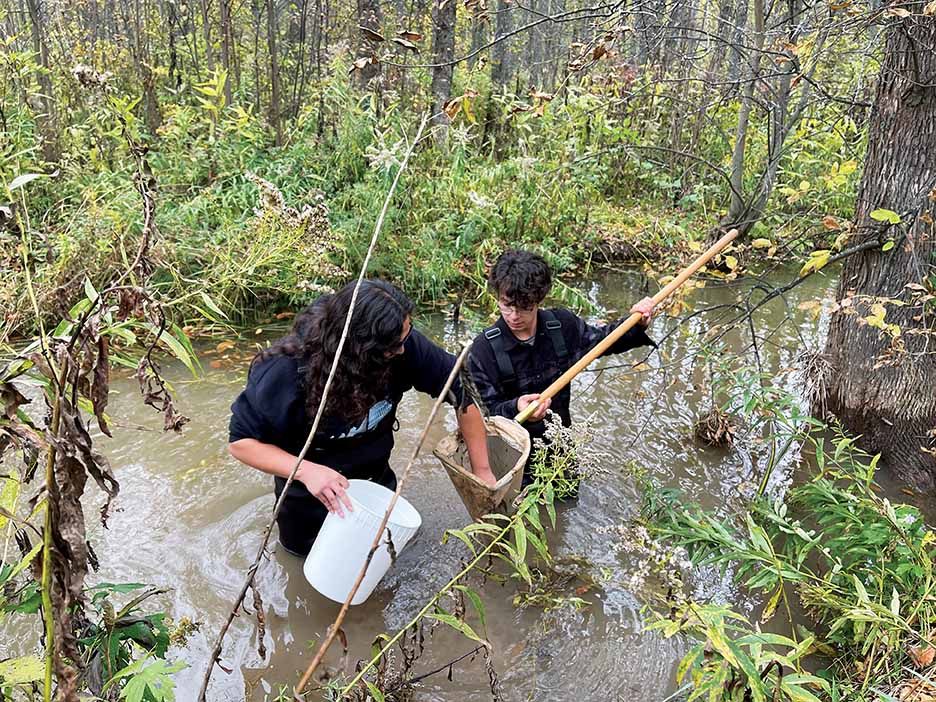
Owen Menominee and Ethan Young, Bagida’waad Alliance Aki-Guardians, rehabilitate a pond to support salamanders, frogs, and water snakes, by shaping its sides and adding natural materials to the water.
“When we first were fishing, we were catching 40 fish overnight. It’d be 35 whitefish to five lake trout maybe,” explains Akiwenzie. “By the time we left fishing we were lucky if we were catching 40 fish—maybe 40 fish. And we were lucky to catch maybe one whitefish in that. The rest were a mixture of lake trout, salmon, pickerel, just a mixture of everything. We noticed that the whitefish we were catching were becoming very mature fish, we weren’t catching a variety of ages of the fish. We also noticed that there was no by-catch, those fish that are part of the eco-system but have no real commercial value. I hate to put it that way, it sounds horrible, but they wouldn’t normally be noticed or accounted for. We’re talking about suckers and burbot or ling cod. All this was an indicator of something going on with the eco-system, with the environment.”
The couple had also noticed dramatically changing weather patterns. Warmer winters that meant no ice cover on the bay, which in turn meant more evaporation. The temperature of the bay is no longer dropping to the levels the whitefish need for spawning and egg development. An increase in stormy weather and lashing winds that meant significantly fewer days when it was safe for Andrew to go fishing.
In 2018, they made what Akiwenzie describes as a “mind-numbing” decision to shut the business. “We’d expected to hand the business off to our boys, and them to their children, but we said a long time ago—and you kind of say it off-the-cuff and don’t expect it will actually happen—but we said if there was a problem with the fish and they needed our help we would stop. And then we got faced with making that decision.”
The family pivoted, throwing themselves into the launch of a non-profit initiative they named Bagida’waad Alliance. The commitments of the organization are climate research on the waters of Lake Huron and Georgian Bay, active stewardship of lands and waters, and relaying to the youth of the Saugeen Ojibway Nation the stories of the Elders about the fish.
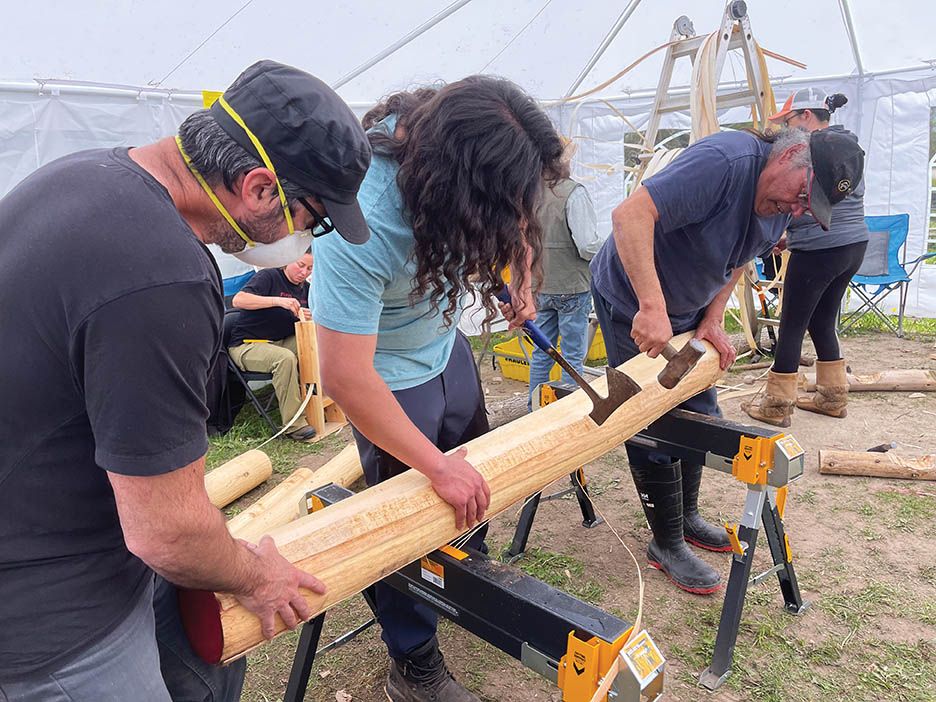
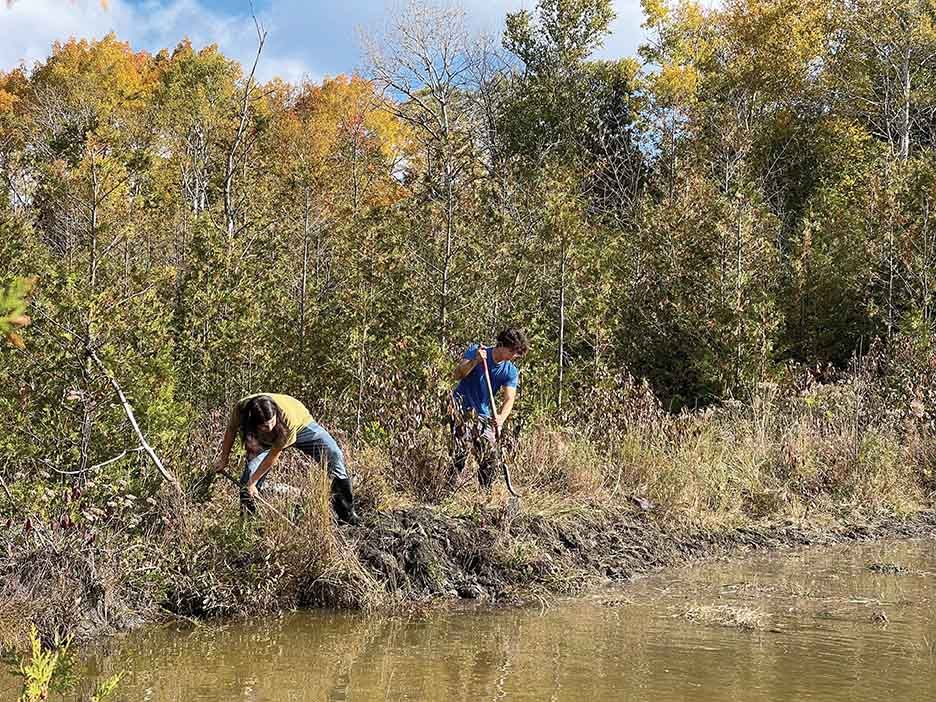
“We are always having youth out on the land seeing things, experiencing things, recording changes, taking note of oddities that they see and want to be able to track over the years. We see Bagida’waad as inspiring the youth to become more active in their environment and adding their voices to speak for things they’re concerned about. That’s so important for them to be seen and to be heard because they’re the ones who will have to live with the consequences of what is happening right now,” says Akiwenzie.
The organization’s initiatives have included dozens of shoreline clean-ups, workshops (topics range from citizen science water testing to fishing net seaming to learning Anishinaabemowin), and classes around the sustainable harvest of foods and cooking local fare. It appoints what it has dubbed Aki-guardians—youth leaders whose role it is to help protect the land. One of the Akiwenzie’s sons leads this programming, and has just finished teaching the group an eco-tourism essentials course, for which each Aki-guardian will get five credits from Fanshawe College.
Ultimately, Bagida’waad is about education. “It’s about educating all people about the importance of all the living creatures out there. Having people understanding they’re a part of nature, not separate from nature, and to value it as much as we value our vehicles and our houses,” says Akiwenzie.
In Anishinaabemowin, Bagida’waad means “they set a net” but Akiwenzie doesn’t know if her family ever will set nets for whitefish again. “It’s going to be interesting to see what adapts and what will die with us,” she says. “I don’t know if hope is a measurement of success, but I hope that we are giving people hope. There are solutions out there. We need to act. And it feels small, but I think everybody doing their part and sharing their stories and encouraging each other is important. I don’t want to talk to my grandchildren about the whitefish in past tense. I want this species to recover. I want to say I remember when they were in decline, but we saved a creature from disappearing off our planet.” E
